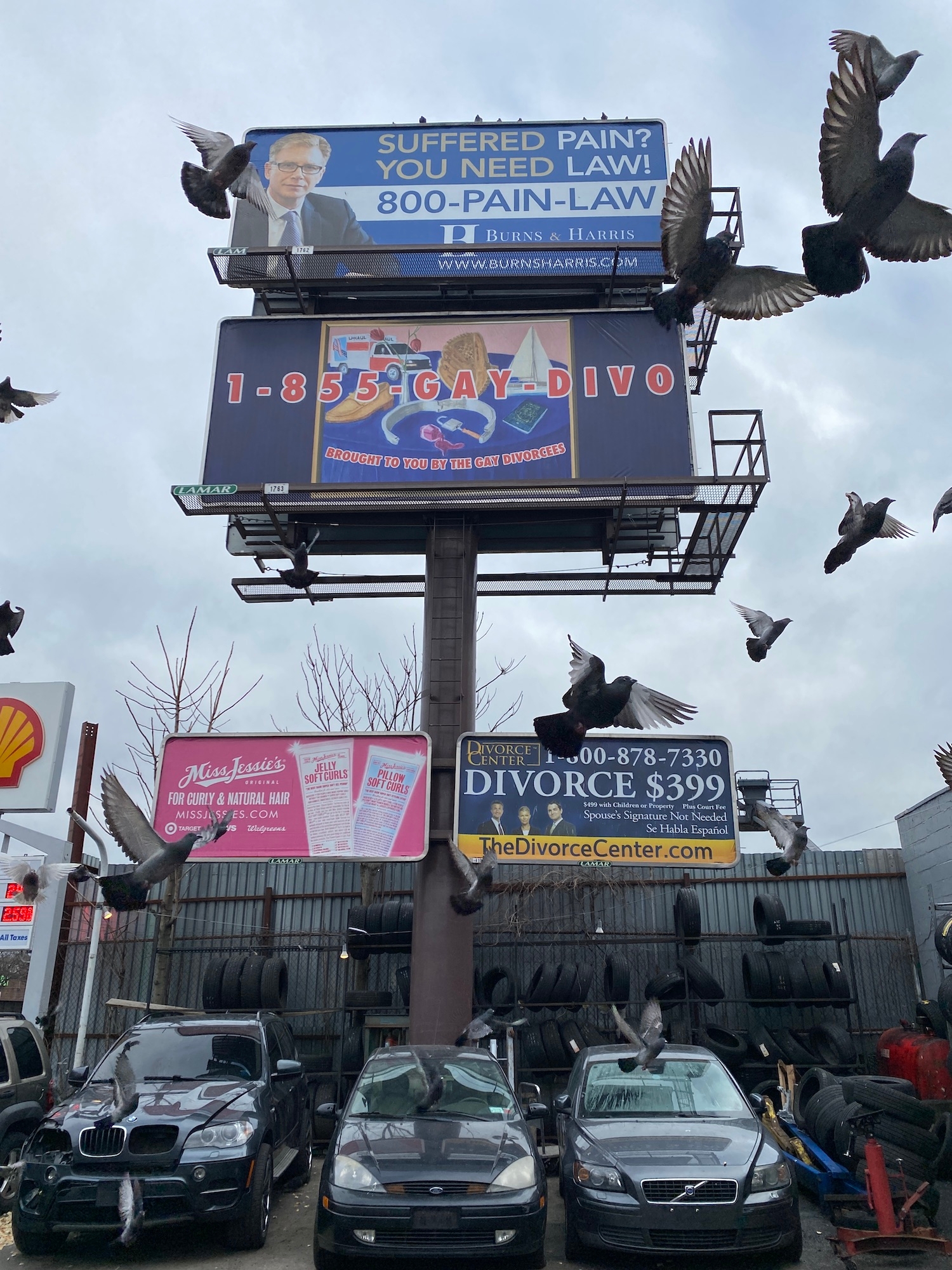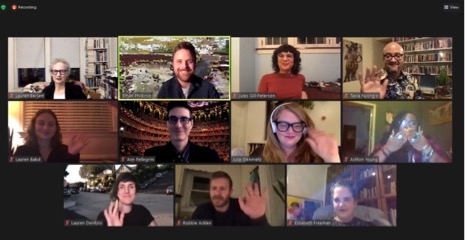1
: a direct telephone line in constant operational readiness so as to facilitate immediate communication
2
: a usually toll-free telephone service available to the public for some specific purpose
a consumer hotline
A point-to-point communication link can exist for many reasons. However, 1-855-GAY-DIVO is one phone line that everyone needs. This hotline answers the questions asked by the heart after a messy queer divorce. Initially conceptualized by Ethan Philbrick and Julia Steinmetz, the creation of a queer collective somehow transformed its’ joint experiences with marriage into a full length album that can be heard by selecting the number on the keypad that relates to your specific emotional needs.
Together, this large group of guests conversed about the temporalities of queer marriage and divorce, the unique experiences that they had, and how the state plays a role in their personal lives.
First, Julia Steinmetz and Ethan Philbrick shared how they started off as colleagues from the faculty department to sharing playlists, to starting this collective. It started off as a joke making a band called the Gay Divorcees, but Steinmetz mentions that Philbrick decided that they would commit to creating it, and so they did! The current members of Gay Divorcees are Robbie Acklen, Lauren Bakst, Lauren Denitzio, Paul Legault, Joshua Thomas Lieberman, Ethan Philbrick, Ita Segev, Julia Steinmetz, and Ashton Young. Together they called the hotline, and audience members chose which songs they wanted to play from the menu in the chat, all of which featured witty lyrics.
Elizabeth Freeman, Professor of English at the University of California, introduces her iteration of the B side of the track, including titles such as “You Can’t Leave Co-parenting Even if it Isn't Working Until Your Minor Child is 18 or Graduates from High School (whichever comes last)” and “You Try Renting a Place with a Bedroom for Your Kid in the Most Expensive Real Estate Market in the Country, While Your Ex Keeps the House!” Freeman discusses the ramifications of divorce with children with these clever song titles, highlighting the difficulties and familial relationships that become more and more complicated.
Next, Jules Gill-Peterson, Associate Professor of English and Gender, Sexuality, and Women's Studies at the University of Pittsburgh, tells us her experiences with immigrating to be with a partner, and how it feels when it doesn’t work out. Unlike marriage, divorce is truly forever, she says. Queer people become collaborators to become accepted by conservatives of the state through marriage, thus demonstrating how instutions affect our everyday lives.
Ann Pellegrini, Professor of Performance Studies and Social and Cultural Analysis at NYU, switches gears to talk about musicals in everyday life. Pellegrini wants to see a greater acceptance of breaking into song in the middle of the street, as a way to promote unique self-expression, but also as a way to combat the messaging that one partner is the only emotional support that we can have. She speaks about having an expanded relational fabric, similar to how this collective itself might function. It’s better than having such a deep investment into an object relation, whether that be the partner or the marriage, since it leads to a kind of optimism that reinforces state-sanctioned decisions. Ultimately, reframing relationships of all kinds can enhance the quality of life, and so can breaking into song!
Chair and Professor of Theater & Performance Studies, Professor of American Studies, and Professor of African-American Studies at Yale University, Tavia Nyong’o reminisces on previous relationships and why they failed. Nyong’o discusses how relationships changed when the law came into effect, saying a previous partner couldn’t understand his hesitation in tying the knot. It didn’t last, he says. But Nyong’o asks a critical question: Is marriage now woven into the market's magic carpet, taking us along for the same long ride? The marriage then becomes a commodity, yet another industry profiting from the laws of both capitalism and love.
Lastly, Lauren Berlant, a Professor of English at the University of Chicago, reflects on divorce as a history of transition. From the middle of a relationship, to the middle of divorce, they contemplate the many ways it signifies the unravelling of a fantasy. Divorce generates new middles in the old photos tucked away in a drawer that can’t be kept on display, nor can they be thrown out. The wedding gifts that are used everyday, and other moments express the hapticality of the union and its subtle permanence even when it has been dissolved.
The lively conversation between panelists allowed them to engage audience members with the hotline one last time- the hotline has since been shut down. It was almost a closing ceremony of sorts, a last goodbye to all the emotions carefully curated into this divorce album. While we may not be able to call, their website, http://www.divorcee.gay/, lives on.
Story by Aarlene Vielot and Shivani Joshi

